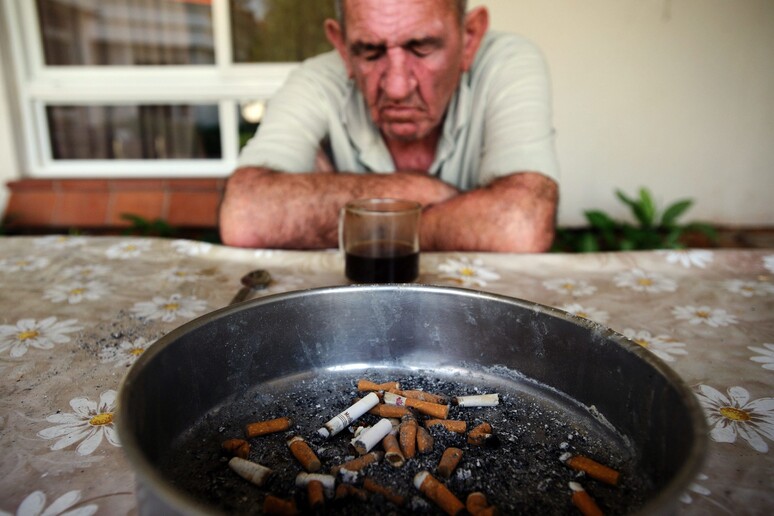October 10 marked World Mental Health
Day and the European Commission announced it was planning to
launch a new campaign to fight stigma surrounding the subject.
Besides affecting lots of people in the bloc, poor mental health
also affects the economy. What is the situation between
prejudices, social media and unequal access to help in the EU?
According to a 2023 EU survey, 46 percent of the European
Union's population had experienced emotional or psychosocial
problems - for example feeling depressed or anxious - over the
course of the previous twelve months. Just a third (33 percent)
of respondents agreed that people with mental health conditions
receive the same level of care as those with a physical
condition, the study found.
Ahead of last week's World Mental Health Day which focussed
specifically on mental health at work, EU Health Commissioner
Stella Kyriakides, called to "break down the stigma around
mental health, still too common across Europe and across all of
society."
She noted that "too often, people living with mental health
challenges are met with misunderstanding, rejection and
isolation" and said that "tackling this is the key to building
healthier, more inclusive societies".
"Mental health is important in every context, in particular at
the workplace where people spend a significant amount of time,"
said Kyriakides.
The European Commission announced on Thursday that it will
launch a campaign - titled "In this together" - to raise
awareness about the existing stigma and to address
discrimination in and around mental health matters, in parallel
with the objective of ensuring that all Europeans can access
treatment regardless of their place of origin, age or
socioeconomic status.
On World Mental Health Day, European Commission Vice-President
Margaritis Schinas stressed that Brussels has launched twenty
initiatives during the last legislature to fight what he called
"a silent epidemic" and "help those who suffer".
Last June, the European Commission announced that it will
allocate 1.23 billion Euro to help member states improve the
mental health of their citizens.
Mental health affects all
The WHO describes mental health as "a state of mental well-being
that enables people to cope with the stresses of life, realise
their abilities, learn well and work well, and contribute to
their community".
During the COVID-19 pandemic mental health has worsened,
especially among vulnerable groups such as children and young
people, the elderly and individuals affected by pre-existing
mental health conditions.
Yet, mental health conditions already affected one in six people
in the European Union before the pandemic.
The OECD estimated that "mental ill-health" costs the 27 EU
countries and the United Kingdom at least 600 billion Euro, or
more than four percent of the GDP - touching both on direct
treatment costs as well as indirect costs related to lower
employment rates and reduced productivity.
In the workplace 27 percent of EU citizens say they suffer from
stress, depression or anxiety, according to the European Agency
for Safety and Health at Work.
But also issues such as climate change have caused higher levels
of anxiety and distress in children and young people
specifically while Russia's war in Ukraine, higher living costs,
unemployment, increased digitalisations are affecting mental
health negatively, too.
According to the European Commission, there is an unequal
distribution of mental health problems between population
groups, with depression being more prevalent among women and in
population groups with lower income and education levels.
The Spanish Mental Health Commissioner of the Ministry of
Health, Belén González, recalled that in Spain, the prescription
of antidepressants has shot up by 250 percent since 2000; people
with low incomes are prescribed with this type of medication
seven times more than those with high incomes.
The prevalence of mental disorders is about to overtake that of
cardiovascular diseases, according to the Italian Society of
Psychiatry which also stated that depression and other mental
pathologies will be the most widespread in the world already
before 2030, the year in which the WHO had estimated the
"overtaking".
In the past, the WHO stated that "current predictions indicate
that by 2030 depression will be the leading cause of disease
burden globally".
ALL RIGHTS RESERVED © Copyright ANSA











